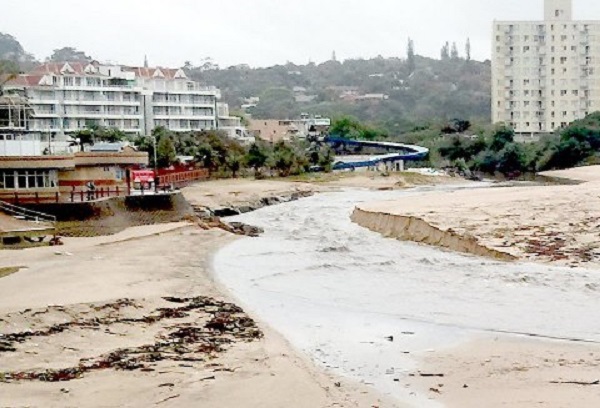EDITORIAL COMMENT: Capacitate CPUs to handle disasters this rainy season

THE catastrophic effects of the La Nina weather phenomenon — characterised by heavy rains often accompanied by strong winds and hail — have already been felt in some parts of Zimbabwe and South Africa with predictions of more inclement weather conditions forecast. While La Nina is often referred to as the positive side of El Nino (associated with dry arid weather and drought), it comes with violent storms which destroy property and crops.
After a sustained period of extreme heat, parts of Johannesburg in South Africa bore the brunt of the La Nina effect with strong winds and heavy rains pounding suburbs close to the OR Tambo International Airport resulting in widespread flooding of homes last week.
Flights were cancelled while incoming planes were diverted to airports in neighbouring countries such as Mozambique due to the severity of the storms.
Residents of Edenvale and Kempton Park were the worst affected with some losing their homes and property to the floods. Motorists were also caught in the floods with some losing their vehicles which were swept away by the torrential rains.
In Zimbabwe, heavy rains have already wreaked havoc in parts of Bulilima and Mangwe districts with villagers losing homes to strong winds, hailstorms and heavy downpours at the weekend. We reported yesterday that about 50 homesteads were destroyed by a hailstorm which hit several villages in Bulilima District over the weekend and many families there are now in need of temporary shelter and food.
The hailstorm also killed livestock and destroyed houses on Saturday night. A local chief described the incident as a tragedy and said people were in need of temporary shelter, clothing and food. Bulilima District Administrator Mrs Ethel Moyo confirmed the incident and said members of the Civil Protection Unit had been deployed to assess the damage.
“I received a report that several homesteads and livestock were destroyed by rains over the weekend. I have not received detailed information on the extent of the damage but as the CPU we are set to travel to the area to assess the damage. “From there we will then mobilise resources to assist the affected with whatever is needed,” she said.
The councillor of Bambadzi Ward, Mr Zoolakes Nyathi, said about 50 homesteads in different villages in his area had been affected. He said the rains started at around 7PM and lasted for about 30 minutes but caused a lot of destruction. Mr Nyathi said villagers who had their homesteads completely destroyed spent the last two nights sleeping in the open.
He said villagers were also in need of food. “At first our area experienced harsh winds which translated into a hailstorm. The winds were severe and several homes had their roof tops blown away. The hailstones were large and they smashed windows and property.
“I conducted a survey after the incident and noted that about 50 homesteads had been affected. Livestock had also been killed although I’m yet to ascertain the number. There are also cases of cattle and donkeys that died while some were injured,” Mr Nyathi said.
We commiserate with the families who have no food and shelter and call on Government and partners in non-governmental organisations to intervene urgently and assist. We also urge neighbours and community leaders to pool their resources and accommodate those who were left homeless.
The spirit of ubuntu enjoins them to assist their kinsmen during this trying time. The CPU has started campaigns to conscientise members of the public on dangers of floods and storms expected this rainy season and we encourage people to heed their message to minimise the damage wrought by storms.
There are basic dos and don’ts during violent storms in rural areas such as steering clear of tall trees, staying indoors, telling children not to cross flooded rivers and repairing homes to guard against strong winds. In urban settings, local authorities need to fix clogged drainage systems which cause flooding of homes particularly in low-lying areas.
Disaster management teams should intensify their awareness campaigns on the dangers of changing weather patterns. In this regard, we urge Government to adequately capacitate CPUs in every province so that they are capacitated to deal with any eventualities this rainy season. All efforts should be made to ensure that there is no unnecessary loss of life. In Matabeleland North for instance, the CPU has already raised the red flag and revealed that it is grossly underfunded and would face challenges in dealing with bigger disasters.
The Provincial Affairs Minister Cde Cain Mathema has said the CPU communication system needs overhaul and this is worrying considering that Sipepa and parts of Tsholotsho are flood prone areas. We feel Treasury should prioritise the allocation of resources to CPUs so that they are not found wanting at the most critical moments.










Comments